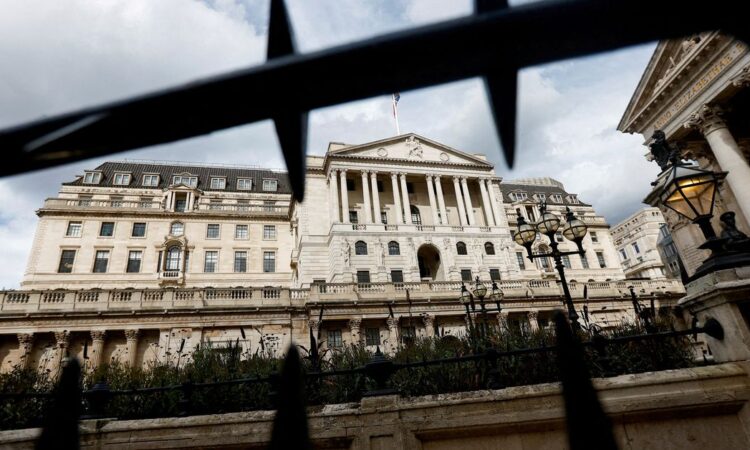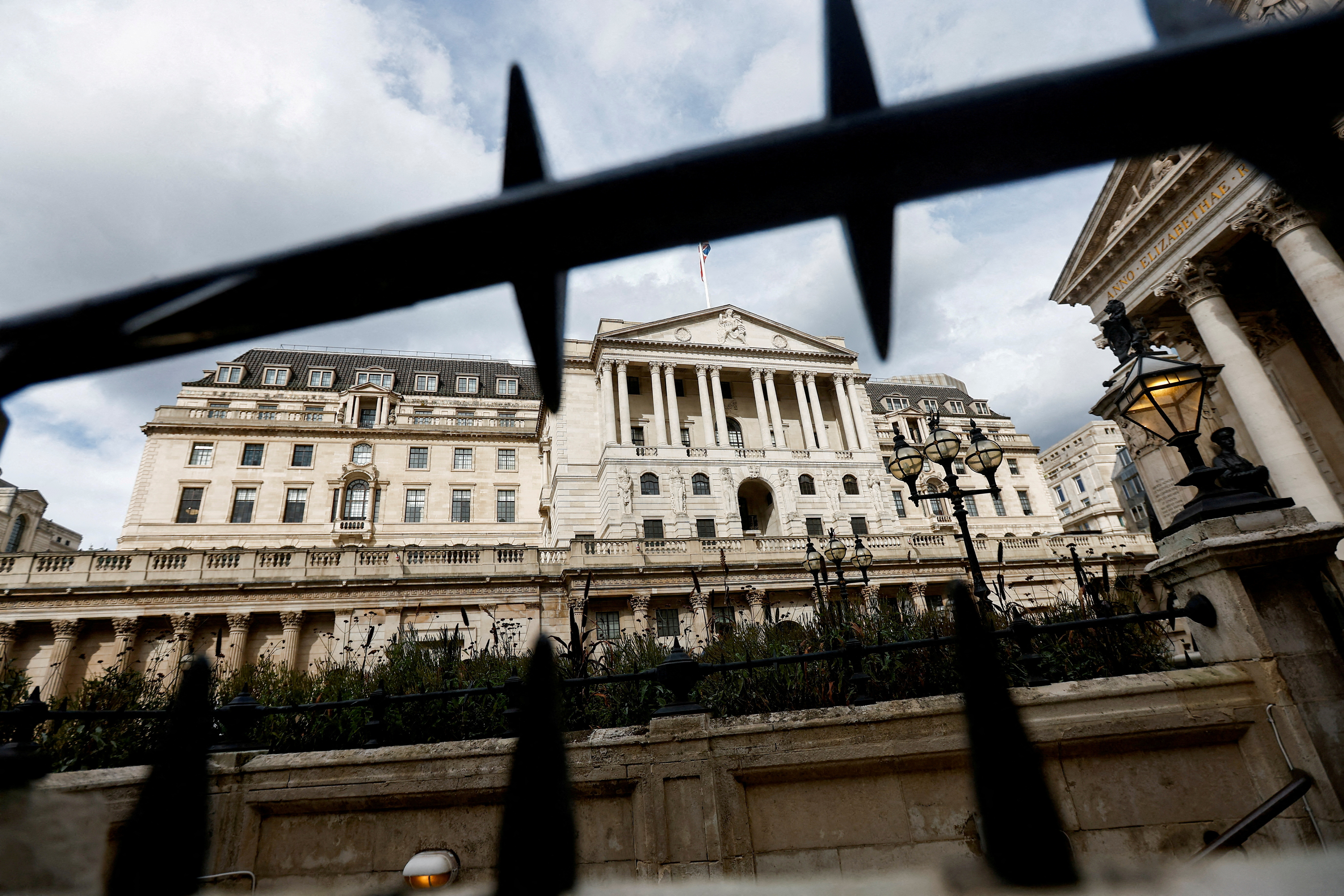

A general view shows the Bank of England in London, Britain, September 21, 2023. REUTERS/Peter Nicholls/File Photo Acquire Licensing Rights
LONDON, Nov 7 (Reuters) – The Bank of England said on Tuesday it was considering a set of “fundamental rules” for securities and derivatives clearing and settlement houses as it revamps UK regulation post-Brexit.
A new UK law approved earlier this year has given the BoE powers to write rules for clearing and settlement houses, which ensure a stock, bond or derivatives trade is safely concluded with ownership and custody swapped for cash.
Rules for the sector, which includes the London Stock Exchange’s LCH clearing unit and Euroclear UK, were previously written in Brussels when Britain was a member of the European Union.
“In designing our rulebook we want to be as transparent as possible and to set out to the industry the fundamental principles that underpin the rulebook and what we expect of firms,” Sasha Mills, BoE executive director for market infrastructure, told a conference held by ISDA, a global derivatives industry body.
“Therefore, we are exploring proposing ‘fundamental rules’ that would underpin the whole regime and so help firms anticipate how we will assess their compliance with more specific rules.”
Mills said that when it comes to writing rules, the BoE will be mindful of the UK’s role as a global financial centre, and how UK clearers are also used in other parts of the world.
There would also be a thorough cost and benefit analysis of any rules.
“I don’t want to presuppose the outcome of that process, but I want to make my position absolutely clear – we at the Bank will not lower standards. Nor are we interested in making changes for change’s sake,” Mills said.
Reporting by Huw Jones; Editing by Andrew Cawthorne and Jonathan Oatis
Our Standards: The Thomson Reuters Trust Principles.





